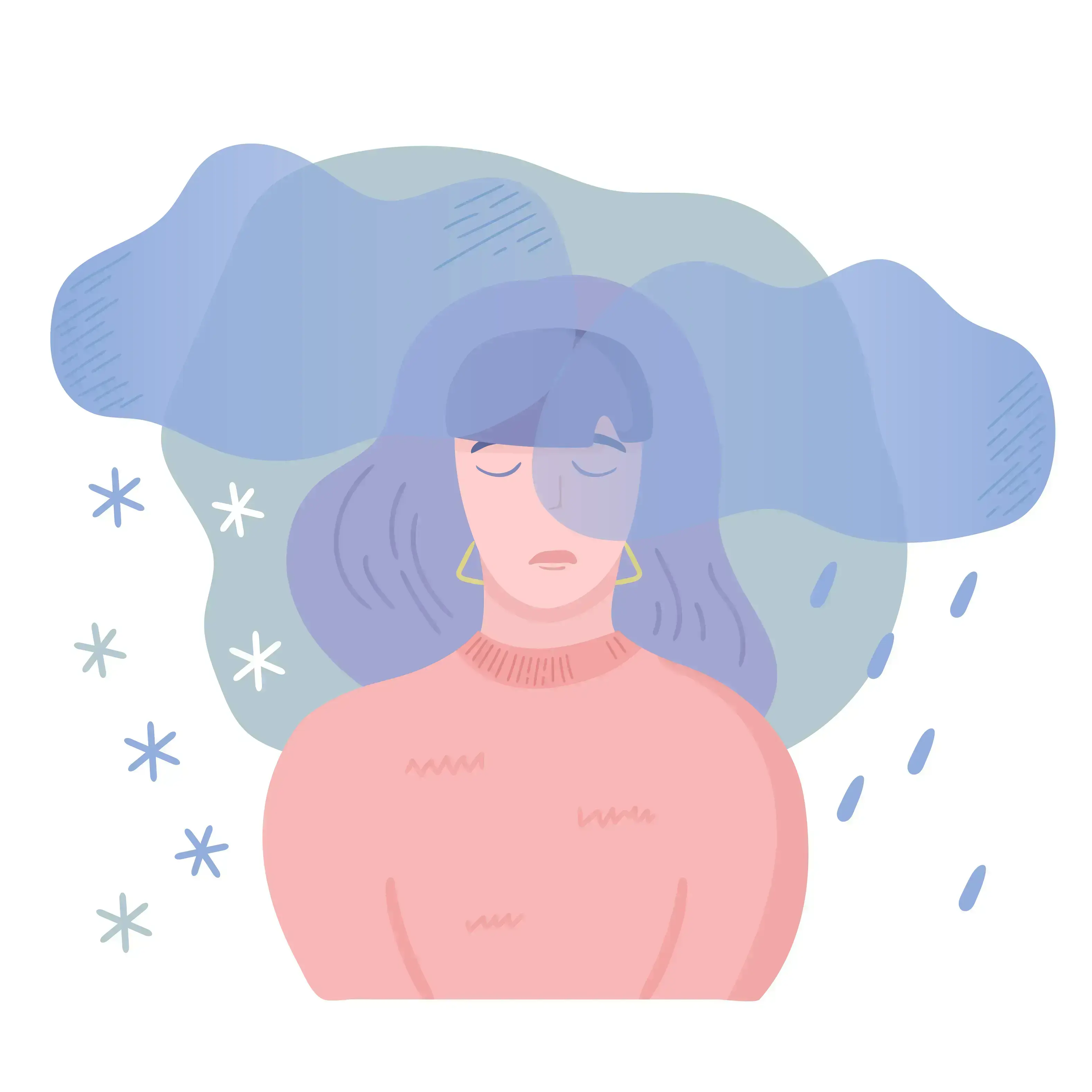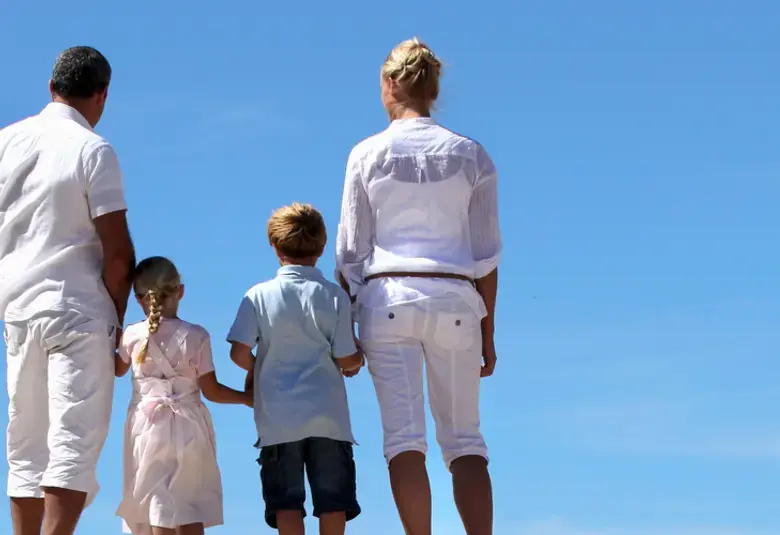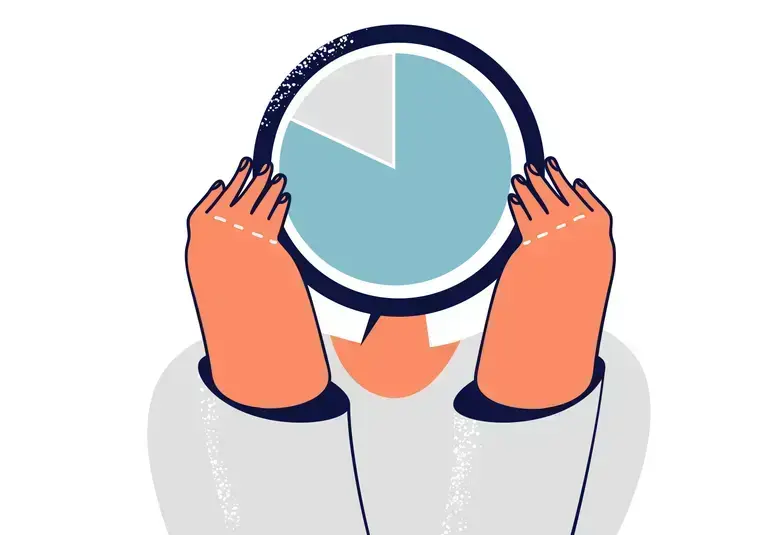Independent of climate-related seasonal affective disorder, social and cultural factors can make the winter holidays difficult for people prone to mental ill health. For many, the time of year means merriment and the strengthening of relationships. But there is a widespread sense that not everyone is happy, and evidence to back this up.
정신 건강이 취약한 사람들은 기후와 관련된 계절성 정서 장애와는 별개로 사회적 및 문화적 요인으로 인해 겨울 연휴 기간을 무사히 보내기 어려워질 수 있습니다. 대부분의 사람들에게 겨울 연휴란 떠들썩한 분위기와 인간 관계가 돈독해지는 시기를 의미합니다. 그러나 잘 알려져 있듯이 이 시기에 모든 사람이 행복한 것은 아니며, 이를 뒷받침하는 근거도 있습니다.
People interviewed towards the end of December had a small but significantly lower satisfaction with life than those interviewed at other times of year, according to a major European survey.1 And the overall balance of mood that people reported was less favorable: on average, positive emotions still exceeded negative ones, but to a lesser extent than in other seasons.
유럽의 한 연구 조사에서는 12월 말에 응답한 사람들은 삶에 대한 만족도가 낮고, 다른 시기에 응답한 사람들에 비해서도 훨씬 낮은 것으로 나타났습니다.1 또한 12월 말 응답자 집단은 전반적인 기분의 균형도가 낮았습니다. 평균적으로 긍정적 감정이 부정적 감정보다 많기는 하지만, 그 차이가 다른 계절의 응답자 집단에 비해 작았습니다.
The finding that the winter holidays increase the frequency of negative feelings suggests the need to be alert to possible exacerbations of mental health problems.
겨울 연휴 기간에 부정적 감정의 발생 빈도가 증가한다는 연구 결과는 정신 건강 문제의 악화 가능성에 대한 주의가 필요함을 시사합니다.
For the isolated and depressed, there is no “midwinter magic”
고립되고 우울한 사람들에게는 '한겨울의 마법'이란 존재하지 않습니다
Being alone in a crowd
군중 속의 고독
For those who are homeless, often because of severe mental health problems, the time can be grim indeed. A woman with untreated schizophrenia has written of the times she spent the midwinter holidays without a home, friends or family; and her festive meals were food scavenged from garbage cans.2
주로 심각한 정신 건강 문제로 인해 노숙자가 된 경우라면 겨울 연휴 기간은 상당히 암울할 수 있습니다. 조현병 치료를 제대로 받지 못한 한 여성은 집도, 친구도, 가족도 없이 보낸 겨울 연휴 기간에 대해 쓴 글에서 자신의 명절 만찬은 쓰레기통을 뒤져서 구한 음식이었다고 전하기도 했습니다.2
A study from Canada found that the most common stressors reported by psychiatric emergency patients over the midwinter period were loneliness (40%) and being without a family (38%).3 But the causes of low mood and other mental health problems are complex.
캐나다의 한 연구에 따르면, 정신 건강이 위험 수준인 환자들이 밝힌 겨울 연휴 기간의 가장 큰 스트레스 요인은 고독(40%)과 가족의 부재(38%)였습니다.3 그러나 우울한 기분과 여러 정신 건강 문제의 원인은 복합적입니다.
Longer hours of darkness can nudge people towards depression
해가 짧아지면 우울감이 발생할 수 있습니다
Seasonal reduction in exposure to light is linked to episodic winter depression, and dysfunction in serotonin systems has been implicated.4 A recent Cochrane Review concluded that evidence for the benefit of light therapy in preventing SAD is limited,5 but exposure to light is crucial for the maintenance of circadian rhythms, and their disruption is associated with impairment of cognition and mood.6
계절적 특성으로 인해 빛에 대한 노출이 감소하는 것은 겨울철 우울증 삽화와 관련이 있으며, 세로토닌 시스템의 기능 장애와 연관되어 있습니다.4 코크란 리뷰의 최근 연구에 따르면 빛을 이용한 계절성 정서 장애 치료법의 이점에 대한 근거는 제한적이지만,5 빛에 대한 노출은 일주기 리듬 유지에 필수적이며 일주기 리듬이 무너지는 것은 인지 및 기분 장애와도 관련이 있습니다.6
That is also a consequence of sleep disruption, which is characteristic of seasonal festivities: neurotransmitter systems mediating sleep overlap with those involved in maintaining mental health.7
이는 연휴 기간에 자주 발생하는 수면 장애의 결과이기도 합니다. 수면을 조절하는 신경 전달 물질 시스템은 정신 건강 유지 시스템과 교집합이 있습니다.7
Helping those at risk
정신 건강이 위험 수준인 사람들을 돕는 방법
During the winter holidays, it is important that we are alert to the possibility of worsening mental health, and that patients seek help when required. It is good to acknowledge the beneficial effects of regular exercise and sleep; the adverse effects of excessive alcohol intake; and the stress that can be caused by over-stretching financial resources and, sometimes, by family dynamics.
겨울 연휴 기간에는 정신 건강 악화 가능성을 인지하고 환자는 필요 시 도움을 청하는 것이 중요합니다. 규칙적인 운동 및 수면의 긍정적 효과, 과도한 음주의 부정적 영향, 과다 지출이나 가정 문제로 인한 스트레스 등을 제대로 인지하는 것이 필요합니다.
In her recommendations, Marjorie Baier combines professional expertise with common sense advice for those at risk:8
다음은 정신 건강이 위험 수준인 사람들을 위해 전문 지식과 일반 상식을 결합한 마조리 바이어(Marjorie Baier) 박사의 조언입니다.8
- Reduce stressors:
- plan time, expenditure and social contacts
- anticipate and take steps to avoid family conflict
- share tasks so responsibility does not fall on one person
- manage expectations about gifts
- 스트레스 요인 줄이기:
- 시간, 지출, 사람들과의 만남 계획하기
- 가정 불화를 방지할 방법을 생각하고 실천하기
- 한 사람에게만 책임을 지우지 않도록 일을 배분하기
- 선물에 대한 기대를 조절하기
- Promote coping mechanisms:
- draw on support among family, friends and community
- for those at risk of isolation, organize meetings to share experience; and
- enhance support for substance abusers at risk of relapse.
- 대응 기제 강화하기:
- 가족, 친구, 공동체의 도움에 의지하기
- 고립될 위험에 처한 사람들을 위해 경험 공유 모임 계획하기
- 재발 위험이 있는 약물 남용자를 위한 지원 강화하기
Our correspondent’s highlights from the symposium are meant as a fair representation of the scientific content presented. The views and opinions expressed on this page do not necessarily reflect those of Lundbeck.




